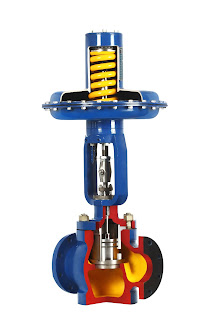1. Flow Regulation and Process Control:
One of the primary functions of control valves in large factories is to regulate the flow of liquids and gases through pipelines and process systems. These valves are designed to adjust the flow rate, pressure, and direction of the media, ensuring optimal process control. In manufacturing plants, control valves are often integrated into complex networks to manage the movement of raw materials and finished products during production.
2. Temperature Control:
Maintaining a stable temperature is crucial in many industrial processes. Control valves equipped with temperature sensors can be utilized to control the flow of heating or cooling fluids, ensuring precise temperature regulation within manufacturing equipment and systems. This application is particularly critical in industries such as food and beverage, pharmaceuticals, and chemical processing, where temperature control directly impacts the quality and consistency of the end products.
3. Pressure Regulation:
Control valves are instrumental in maintaining stable pressure levels within factory processes. By automatically adjusting the valve opening, these devices can control the pressure of gases and liquids flowing through pipes. Proper pressure regulation not only ensures the safe and efficient operation of equipment but also prevents potential damage to pipelines and components.
4. Liquid Level Control:
Large factories often deal with various liquid storage tanks and vessels. Control valves can be used to manage liquid levels by adjusting inflow and outflow rates. Maintaining optimal liquid levels is vital for uninterrupted production and preventing overflow or underflow situations that may lead to product wastage and downtime.
5. Process Safety and Emergency Shutdown:
In safety-critical processes, control valves act as vital components of emergency shutdown systems. These valves are designed to automatically close or open in response to specific conditions, such as excessive pressure or a hazardous event. The quick response of control valves during emergency situations helps prevent accidents and protect both personnel and equipment.
6. Batch and Recipe Control:
In industries where precise formulation and recipe management are crucial, such as pharmaceuticals and specialty chemicals, control valves play a vital role in ensuring accurate blending and dosing. By controlling the flow rates of different ingredients, the valves help maintain the desired composition and consistency of the final product.
7. Energy Efficiency:
Control valves contribute to energy conservation in large factories by optimizing the use of utilities such as steam, water, and compressed air. By precisely controlling the flow rates and pressure levels of these resources, control valves help reduce energy wastage and operational costs. This energy-efficient approach aligns with modern sustainable practices, benefiting both the environment and the factory's bottom line.
8. Environmental Compliance:
Control valves aid large factories in meeting environmental regulations and emission standards. By precisely controlling the release of pollutants, control valves contribute to reducing air and water pollution. Additionally, they enable factories to implement effective pollution control measures, ensuring compliance with regional and global environmental guidelines.
Control valves are invaluable assets in large factories, enhancing efficiency, safety, and precision in various processes. From flow regulation to environmental compliance, the versatile uses of control valves ensure optimal performance and seamless operations, positioning them as integral components in modern industrial settings.

Comments
Post a Comment